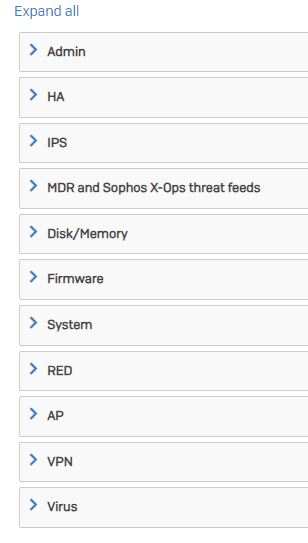Hello,
we have multiple environments of Sophos SG and XG Clusters. As we are not able to check every Cluster itself we automated a notification for WAF Certificate Expiration.
On SG this is built-in but not so on the XG.
I searched a little, and the last thing I think could help is to query it via api.
Is there any possibility to check this?
SNMP would be possible as well...
Any Insights?
This thread was automatically locked due to age.




